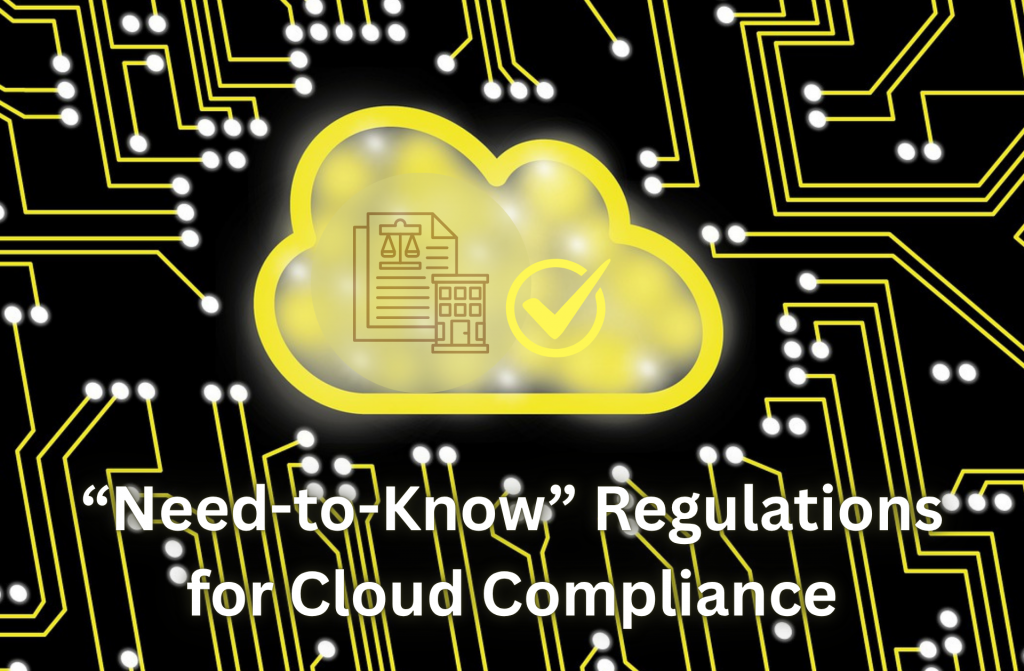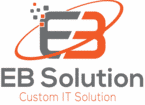Key Regulations for the Digital Age
The migration to cloud computing has revolutionized information storage and management in companies. This is because cloud solutions have proven to be cost-effective, flexible, and scalable. However, they also bring new issues, specifically, with data security and compliance. As such, an IT consultant NYC reiterates key regulations that businesses need to adhere to. This is in their attempts to secure business information and customer details.

IT Consultant: NYC Businesses “Need-to-Know” Regulations for Cloud Compliance
Our IT consultant, NYC, here at EB Solution, knows that cloud compliance can be complex. This stems from the ever-evolving privacy protection standards, including HIPAA, GDPR, and PCI DSS. Hence, organizations need to be especially sensitive and responsive not just to avoid the combination of costly penalties and a tarnished reputation but also ensure the safety of the information in their systems.
Understanding Cloud Compliance
Cloud compliance is a term that describes how rules of law, security, and privacy govern data storage and management. Unlike traditional systems, IT consultant NYC explains, cloud environments are typically inter-regional and inter-jurisdictional, and this adds complexity. In order to meet these standards, organizations should protect data, both at rest and in transit. They must also keep logs of auditing and control as well as retain data and support data privacy. Lastly, their IT team or managed services provider must also carry out periodic security tests. So, to speak, compliance keeps the sensitive information safe and customers trustworthy.
The Shared Responsibility Model
According to an IT consultant NYC, the biggest mistake about having a cloud provider is that one assumes complete compliance coverage. Truth is that both the cloud provider and the organization are responsible for compliance. Here at EB Solution, we assist businesses in realizing where their responsibilities are. This clarity will avoid oversights that may cause compliance failures.
Cloud Service Providers (CSPs)
They take care of the underlying infrastructure, e.g., servers, storage, and networks.
Customers
On the other hand, as consumers, organizations must manage their own data, access controls, and configurations.
Major Cloud Compliance Regulations
Regulatory demands are different based on the area, business, and kind of data processed. The following are the most important rules that most organizations must be aware of:
General Data Protection Regulation (GDPR – EU).
The GDPR regulates the privacy of data of all citizens in the EU, no matter where a company is based. To comply, businesses must store information in EU-compliant areas and support data subject rights, including deletion or correction. Additionally, a company’s network must have strong encryption and access controls. Lastly, it must adhere to breach notification guidelines.
The Health Insurance Portability and Accountability Act (HIPAA – US).
HIPAA safeguards electronic personal health data (ePHI). Organizations that handle patient data should select Cloud providers that are HIPAA-compliant and sign Business Associate Agreements (BAAs) with them. They must also ensure that their system encrypts ePHI during storage and transmission. Lastly, companies must maintain elaborate access and activity audit logs.
Payment Card Industry Data Security Standard (PCI DSS).
Businesses that deal with credit card transactions can have safe payment processing through PCI DSS. IT consultant NYC reminds companies that to meet PCS DSS requirements, it involves encrypting and tokenizing cardholder data. Likewise, the use of network segmentation and performing regular vulnerability tests and penetration tests are required.
FedRAMP (Federal Risk and Authorization Management Program) – U.S.
FedRAMP is the standard of cloud security among the federal agencies in the United States. To deal with the government, the providers have to satisfy high standards of data processing, encryption, and physical security.
ISO/IEC 27001
This is another international standard that outlines the best practices of Information Security Management Systems (ISMS). IT consultant NYC shares that this helps organizations in having the same, documented, and auditable security practices.
Maintaining Cloud Compliance
IT consultant NYC stresses that compliance is not a checklist that should be completed once but is rather a process. Therefore, companies require proactive measures to keep up with the regulations. This includes:
Conduct Regular Audits
Regular compliance audits can be used to detect areas of weakness before they result in violations. Audits are also used to ensure documentation to demonstrate compliance readiness in assessments.
Strengthen Access Controls
The Principle of Least Privilege (PoLP) allows users to access only the necessary things. Add Multi-Factor Authentication (MFA) as an additional security platform that helps to avoid unauthorized access.
Encrypt All Data
Data should be encrypted when being transferred and when at rest. TLS and AES-256 protocols are viewed as best practices to comply with industry standards.
Monitor Continuously
Unauthorized access must be detected quickly with the help of real-time monitoring and automated alerts. This maintains elaborate audit logs which further enhance compliance as well as incident response preparedness.
Ensure Data Residency
Companies must ensure that their cloud service providers retain information under strict and sanctioned jurisdictions. The laws of data residency vary across countries, and therefore, to comply with them, one must be aware of where data resides.
Train Employees
Employee errors frequently lead to compliance violations. Training of workers on the detection of phishing schemes and policy and effective management of data is very crucial in risk reduction.
Be on Top of the Compliance Landscape
The virtual world is dynamic, and so are the compliance standards. An active approach would help organizations to preserve their image, avoid sanctions, and maintain the loyalty of customers. Here at EB Solution, we offer guidance to companies at each stage of cloud compliance. Our professional IT consultant NYC ensures that your systems are always secure, resilient, and meet compliance regulations.
